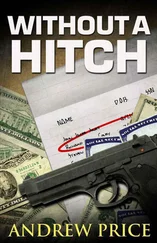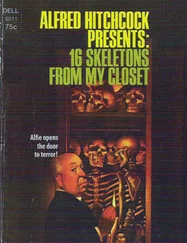When I say that we didn’t hold much converse, I suppose that I should blame myself as well as him. But in some ways I don’t blame myself that much: at the age of ten or so I turned from the newspaper to ask him why the paratroopers from Algeria were threatening to occupy Paris and proclaim a military coup d’etat in mainland France. His typical two-word response—“Gallic temperament”—rather dried up my interest in pursuing the subject any further. But I disappointed him, too, I know. He would have liked me to be good at games and sports, as he was. I couldn’t even pretend to care about cricket or rugby or any of that. Convinced that I might want to earn my colors instead as some kind of Scout, he went to a huge amount of trouble to send me, at my prep school, miniature versions of complicated knots executed in string and pipe-cleaner and neatly diagrammed. Had I bothered to master these, I could have perhaps later made better headway with the nautico-literary descriptions of the vessels and ropes of Hornblower and Aubrey, and their halliards and bowlines and mainbraces (the most alarming of the latter being the “cunt-splice,” demanded by Captain Aubrey from his boatswain in a heated moment, about which I could certainly never have asked Commander Hitchens).
He was quite a small man and, when he took off his uniform (or had it taken away from him) and went to work as a bookkeeper, looked very slightly shrunken. For as long as he could, he took jobs that kept him near the sea, especially near the Hampshire-Sussex coast. He would work for a boatbuilder here, a speedboat-manufacturer there. We finally drifted inland, nearer to the center of my mother’s beloved Oxford, where there was a boys’ prep school that needed an accountant, and he seized the chance to acquire a dog. I hadn’t realized until then quite how much he preferred the predictability and loyalty of animals to the vagaries and frailties of human beings. Late in life the landlords of the apartment building where he lived were to tell him that he couldn’t keep his red-setter/retriever mix, a lovely animal named Becket. The now-beached Commander couldn’t afford to move house again, so instead of protesting, he meekly gave the dog away. But not before mooting with me a plan to establish Becket somewhere else, “so that I could go and visit him from time to time.” Again I had the experience of a moment of piercing pity, of the sort I could only now imagine feeling for a child of mine whom it was beyond my power to help.
I do have a heroic memory of him from my boyhood, and it happens to concern water. We were at a swimming-pool party, held at the local golf and country club that was almost but not quite out of our social orbit, when I heard a splash and saw the Commander fully clothed in the shallow end, pipe still clamped in his mouth. I remember hoping that he had not fallen in, in front of all these people, because of the gin. Then I saw that he was holding a little girl in his arms. She had been drowning, quietly, just outside her depth, until someone had squealed an alarm and my father had been the speediest man to act. I remember two things about the aftermath. The first was the Commander’s “no fuss; anyone would have done it” attitude to those who slapped him on the back in admiration. That was absolutely in character, and to be expected. But the second was the glare of undisguised rage and hatred from the little girl’s father, who should have been paying attention and who had instead been quaffing and laughing with his pals. That hateful look taught me a lot about human nature in a short time.
Otherwise I am rather barren of paternal recollections, and shall have to settle for the memory of a few walks, and for the strange cult of golf. Seafarer though he was, my father loved the downlands of Hampshire and Sussex and later Oxfordshire and could stride along with his trusty stick, pointing out here a steading and there a ridgeway. He was a Saxon in his own way, and still had the attitude, now almost extinct, that there had been such a thing as “the Norman yoke” imposed upon this ancient landscape and people. A favorite joke on his side of the family concerned the Hampshire yeoman in dispute with his squire. “I suppose you know,” observes the squire loftily, “that my ancestors came over with William the Conqueror.” “Yes,” responds the yeoman. “We were waiting for you.” (In an alternative version once offered by the rogue Marxist Welshman Raymond Williams, the yeoman tries to be witty and says: “Oh yes, and how are you liking it over here?”) I mention this because a certain kind of British conservatism is quite closely connected with this folk memory of populism and ethnicity, and because it became important for me to comprehend this later on.
The golf game must have taken place when I was about thirteen. I had taken up the sport, and even got myself a few clubs, with the idea that I ought to have something in common with my reticent old man, who loved golf and treasured a pewter mug he had once won in a Navy tournament held on the deck of an aircraft carrier. My effort paid off, if only once. We had a round of nine holes that somehow went well for both of us, and then he treated me to a heavy “tea” in the clubhouse where, if nothing much got said, there was no tension or awkwardness, either. It was the closest I ever came, or felt, to him. There was a very soft and beautiful dusk, I remember, as we drove slowly and quietly home through the purple-and-yellow gorse of the moors.
Once I had left home for university and then for London, and once my mother had been taken from us, and once he had had to hear, and from his son at that, that Yvonne had not been murdered but had slain herself while distraught about another man, a very slight but definite coolness replaced the respectful distance that had developed between me and the Commander. More than anything, this chill consisted of a subject (the prior existence of his wife and my mother) that he simply would not and could not discuss with me. Over time, all the same, there was the occasional thaw. He disliked coming to London on principle and had enraged me when I was younger by refusing to take a job as the secretary of Brooks’s Club. (I could have been living in London—in Mayfair, for heaven’s sake—and when I was a teenager!) But I did once lure him to the detested city to see a musical (about Fats Waller, an uncharacteristic favorite of his, called Your Feet’s Too Big ) and he once astonished me by asking, in the late 1970s, if I’d care to come with him to the reunion of his old shipmates. Turning up at some down-at-heel Navy veterans’ club on the appointed night, I was quick to realize that this late muster was almost certainly going to be the last one for the fine company that had once crewed the good ship Jamaica . But how brave and modest and honest and unassuming they were, these men who had bucketed through icy storms and every kind of peril in order to sweep Hitler from the seas. An oddly touching detail stays with me: instead of referring to my father as Eric or the Commander they all called him “Hitch,” which was what my close friends were beginning to call me.
At around this time I was starting to turn my thoughts and ambitions toward America, which the grizzled veteran showed no interest in visiting. In uniform at any rate, he had been everywhere from China to Chile to Cyprus to Ceylon, but the New World held no charms for him and at our infrequent meetings he never evinced any curiosity about the place. If he asked a question on another topic, it would be of the rhetorical kind: “Don’t you think Northern Ireland could do with a good stiff dose of martial law?”—almost as if force had never yet been tried in the black record of British rule in Ireland—and if he made a statement, there might very well be a rhetorical element there, too. (“If they build this bloody Channel Tunnel and join us to France,” he once said in what I’d call the classical statement of his worldview, “I shall never vote Conservative again.”) I sometimes used to wonder if he was saying these things for effect, or even because of the gin, but if challenged he would re-state things even more decidedly: a tendency I have since come to notice and sometimes to deplore in myself.
Читать дальше











